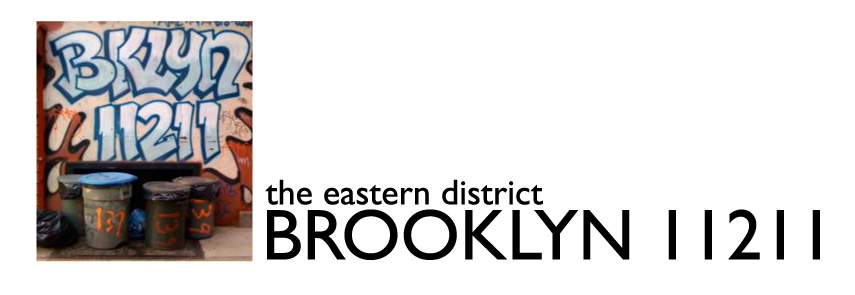More Domino Press
In yesterdays papers there were a host of good articles out on the Domino rezoning, the City Council hearing and the politics at play. In no particular order, here are the must-reads.
In the Observer, Eliot Brown’s Domino Theory: Brooklyn Dems Face Off Over Mammoth Williamsburg Project:
The New Domino development was destined for a fight the minute CPC bought the 11-acre refinery in 2004 for $55 million. Shortly thereafter, the city rezoned much of the rest of the Williamsburg/Greenpoint waterfront, the refinery excluded, to install residential towers in the place of the industrial shoreline-the rezoning itself a battle with critics who decried the influx of luxury condos.
Actually, if the developers had stuck to the density levels of the 2005 zoning, they might well have had the support of the community board and might not be having this fight now. The community openly voiced its concern over density and equity with the 2005 zoning from day one. When Domino says that they listened to the community, what they mean is that they listened to the people in the community they wanted to hear.
However the negotiations go between Mr. Levin and CPC, the firm has clearly played the political game well up until this point.
CPC executives … won over numerous religious and nonprofit groups, which lauded the affordability levels. CPC has hired at least four consultants to handle relations with the city, politicians and the neighborhood… All told, the developer has paid at least $1 million in lobbying expenses since 2006, according to filings.
That’s more than they have set aside for their local job training programs.
In the Times, Charles Bagli has a lengthy piece entitled 2 Sides Clash at City Hall Over Domino Housing Plan:
[As] the $1.4 billion project nears the end of the city’s often unpredictable approval process, its fate is subject to Brooklyn’s fractious politics, a weak economy and a once working-class community exhausted by the pace of luxury development during the real estate boom. Critics say the benefit of moderate-income housing would be outweighed by the project’s tall buildings, densely packed on 11 acres, and its impact on a crowded subway station nearby.
Although the City Planning Commission has approved the project, known as New Domino, it is unclear how much political muscle the Bloomberg administration is exerting on its behalf as the City Council debates the merits of developing the site. The Council and the mayor have the final say on the plan.
And
“We are here today to support the Domino project because we need affordable housing,” said Yolanda Coco, a tenant advocate for the group East Brooklyn Churches…
Christopher H. Olechowski, chairman of Community Board 1, which includes the site, disagrees. “People are pretty much fed up,” he said. “Our neighborhood is inundated.”
Interesting that none of the supporters Bagli quotes are actually from Williamsburg or Greenpoint.
And Bloomberg’s (the news, not the Mayor) architecture critic James Russell weighs in with his thoughts on the architectural merits of the project in Domino’s $1.3 Billion Makeover Hits Trouble:
The New Domino tries to do right by the community, yet it comes at some compromise to the design. Taking away all the pipes, chutes and tanks that now envelope the refinery building will leave a prettified oversized lump, depriving it of the raw power of brute utility. The park, designed by landscape architect Quennell Rothschild & Partners LLP, has been painstakingly negotiated into blandness. The setting deserves better.
It’d be great if the Vinoly towers didn’t get dumbed down and the factory and park designs were refined, but I don’t hold out much hope. New Yorkers — and most Americans — haven’t chosen a more reliable way to pay for parks and low-income housing, so these high-risk yet compromised Faustian real-estate bargains get made.
[Updated with quotes from Bagli article.]

I’m more concerned than ever about this – there seems to be no conciliatory tone over park space, and transportation overload. Those should be absolute dealbreakers for the community. I don’t mind lots of new condos, and while still low, the affordable housing is a notable improvement, but as is, there’s no doubt this is shortsighted and ultimately detrimental to the community. What are the odds we see some concessions from CPC here?